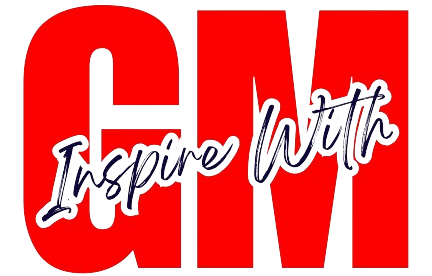In the ever-evolving landscape of Human Resources Management (HRM), the role of HR technology, particularly Human Resource Information Systems (HRIS), has become pivotal in steering organizations towards digital transformation. This blog post delves into the significance of HR technology in shaping the future of HRM and facilitating seamless digital transformation.
Understanding the Essence: HR Technology Driving Digital Transformation
Transforming HRM in the Digital Age
HR technology, encompassing HRIS, has emerged as a cornerstone for organizations aiming to navigate the challenges and opportunities presented by the digital age. It is not merely a tool but a strategic enabler, transforming HRM into a dynamic, data-driven, and employee-centric function.
Defining HR Technology and HRIS:
HR technology refers to the use of digital solutions and platforms to manage HR functions effectively. At the core of this technology lies HRIS, a comprehensive system that integrates various HR processes, from recruitment to payroll and employee management, into a unified platform. HRIS streamlines workflows enhances data accuracy, and empowers HR professionals with real-time insights.
The Evolution of HR Technology:
Over the years, HR technology has undergone a significant evolution. From basic payroll software to sophisticated HRIS platforms, the focus has shifted towards providing a holistic solution that not only automates routine tasks but also contributes to strategic decision-making. This evolution aligns with the broader digital transformation goals of organizations.
The Strategic Role of HR Technology:
In the digital age, HR technology is not just an administrative tool; it plays a strategic role in organizational success. By automating repetitive tasks, HR professionals can redirect their focus towards strategic initiatives, such as talent management, employee engagement, and workforce planning. This strategic shift is instrumental in achieving business objectives.
Key Components of HR Technology Driving Digital Transformation:
Building Blocks for a Digital-Ready HRM
To understand the transformative power of HR technology, it’s essential to explore the key components that drive digital transformation in HRM.
Cloud-Based HRIS Systems:
Cloud-based HRIS systems have become a linchpin for digital-ready HRM. These systems offer scalability, flexibility, and accessibility, enabling organizations to adapt to changing needs. Cloud-based solutions provide real-time updates, ensuring that HR professionals have access to the latest information from anywhere, fostering a more agile workforce.
Artificial Intelligence (AI) in Recruitment:
AI is revolutionizing the recruitment process. From resume screening to candidate matching, AI-driven tools streamline and enhance the hiring process. These technologies not only save time but also improve the quality of hires by identifying the most suitable candidates based on predefined criteria.
Employee Self-Service Portals:
Empowering employees with self-service portals is a hallmark of digital HR technology. These portals allow employees to manage their HR-related tasks, from updating personal information to accessing pay stubs and benefits information. This self-service model not only boosts efficiency but also enhances employee satisfaction and engagement.
Data Analytics for Informed Decision-Making:
HR technology leverages data analytics to provide valuable insights into workforce trends, performance metrics, and employee engagement. By harnessing the power of data, HR professionals can make informed decisions, identify areas for improvement, and align HR strategies with overall business goals.
Overcoming Challenges in HR Technology Implementation:
Addressing Roadblocks to Digital Transformation
While the benefits of HR technology are immense, organizations may encounter challenges during the implementation phase. Addressing those demanding situations is critical for a a success virtual transformation.
Integration with Existing Systems:
Integrating new HR technology with existing systems can be a complex task. Compatibility issues, data migration, and ensuring a seamless transition are common challenges. Thorough planning, collaboration with IT departments, and selecting HR technology solutions with robust integration capabilities are essential to overcoming this challenge.
Change Management and User Adoption:
Resistance to change and low user adoption rates are perennial challenges in HR technology implementation. Organizations must prioritize change management strategies, including clear communication, comprehensive training programs, and soliciting feedback from end-users. Engaging employees in the process fosters a sense of ownership and reduces resistance.
Data Security Concerns:
With the growing reliance on virtual platforms, information safety is a paramount concern. HR technology often involves handling sensitive employee information. Implementing stringent security measures, encryption protocols, and compliance with data protection regulations are essential steps in addressing data security concerns.
Measuring Success and Continuous Improvement:
Evaluating the Impact and Evolving Strategies
Measuring the success of HR technology implementation involves establishing key performance indicators (KPIs) and adopting a mindset of continuous improvement.
Key Performance Indicators (KPIs):
Defining KPIs is crucial for measuring the impact of HR technology on digital transformation. Metrics such as time saved in HR processes, accuracy of payroll processing, and improvements in employee satisfaction provide tangible benchmarks for success.
User Feedback and Iterative Enhancements:
Regular feedback from HR professionals and end-users is invaluable. Establishing mechanisms for feedback, whether through surveys, focus groups, or direct communication, allows organizations to identify areas for improvement and make iterative enhancements to the HR technology.
Alignment with Business Objectives:
The success of HR technology should align with broader business objectives. Regularly assessing how HR technology contributes to organizational goals ensures that the digital transformation journey remains strategic and impactful.
Conclusion: Steering HRM into the Digital Future
In conclusion, HR technology, particularly HRIS, is at the forefront of steering HRM into the digital future. By understanding its transformative role, exploring key components, overcoming implementation challenges, and measuring success, organizations can harness the full potential of HR technology in their journey towards digital transformation. As the digital landscape continues to evolve, HR technology stands as a beacon, guiding organizations towards more efficient, strategic, and employee-centric HRM practices.












